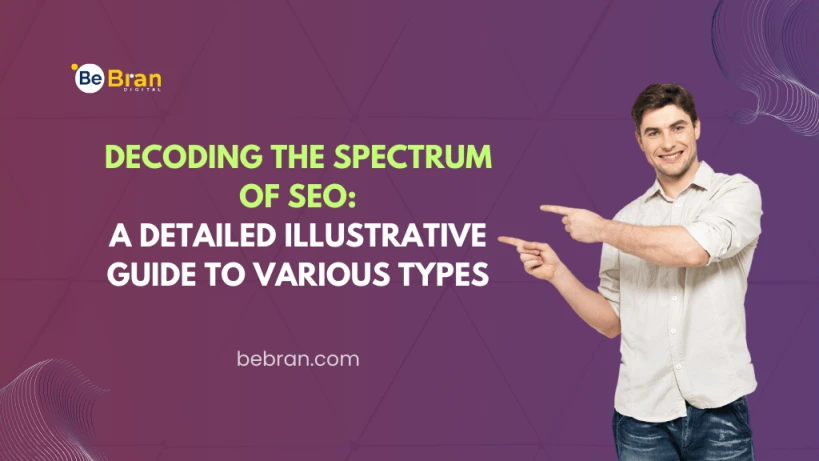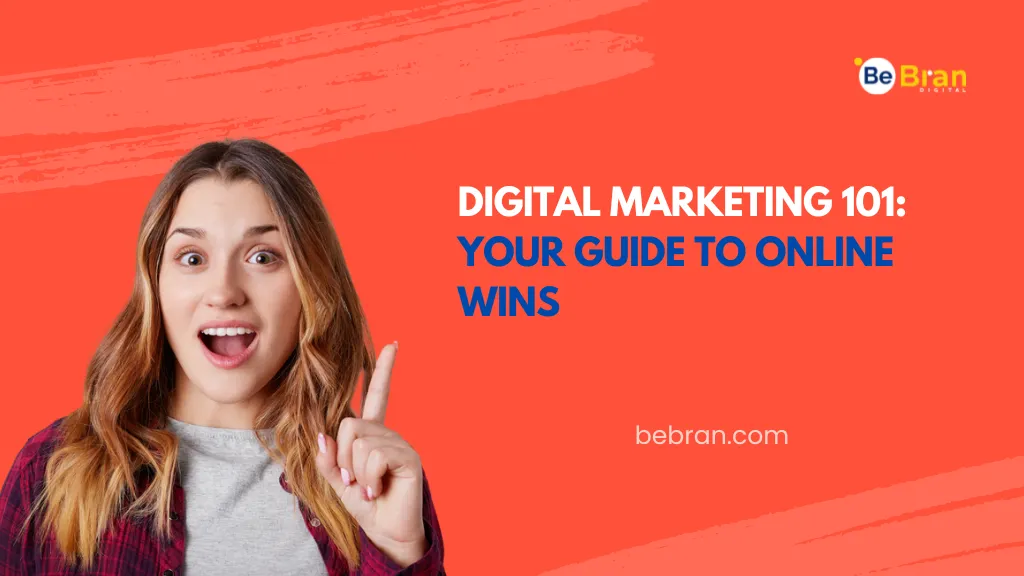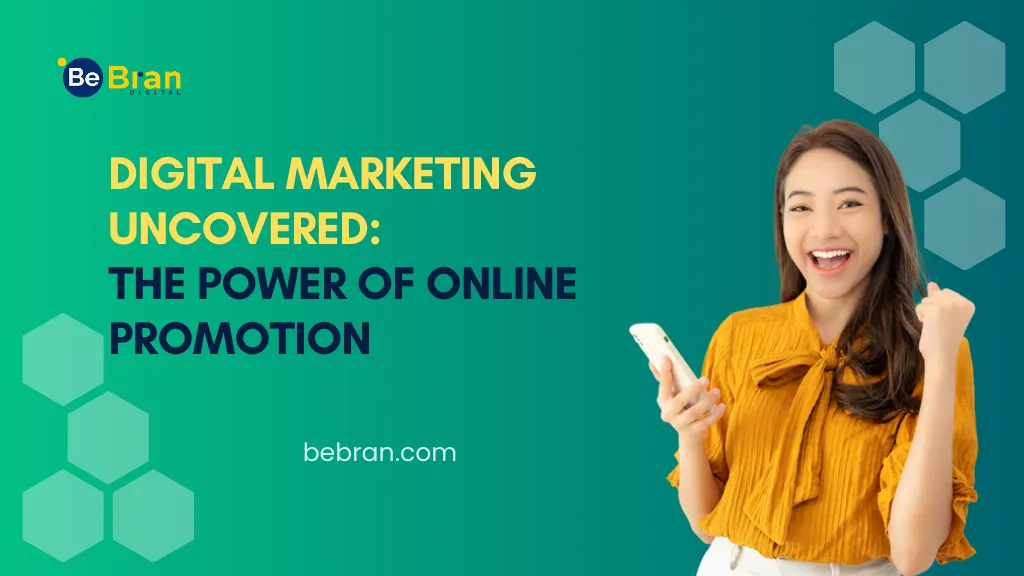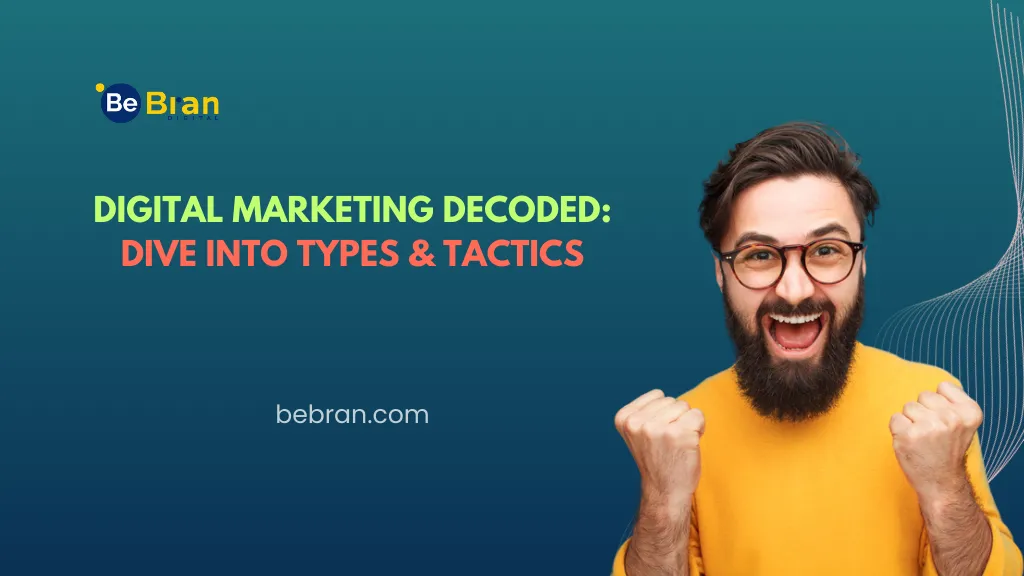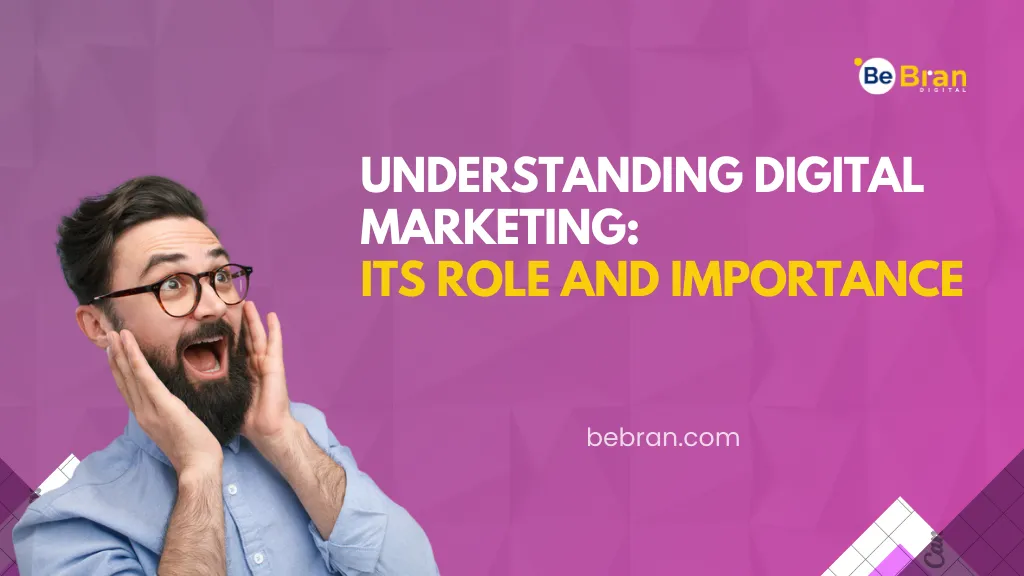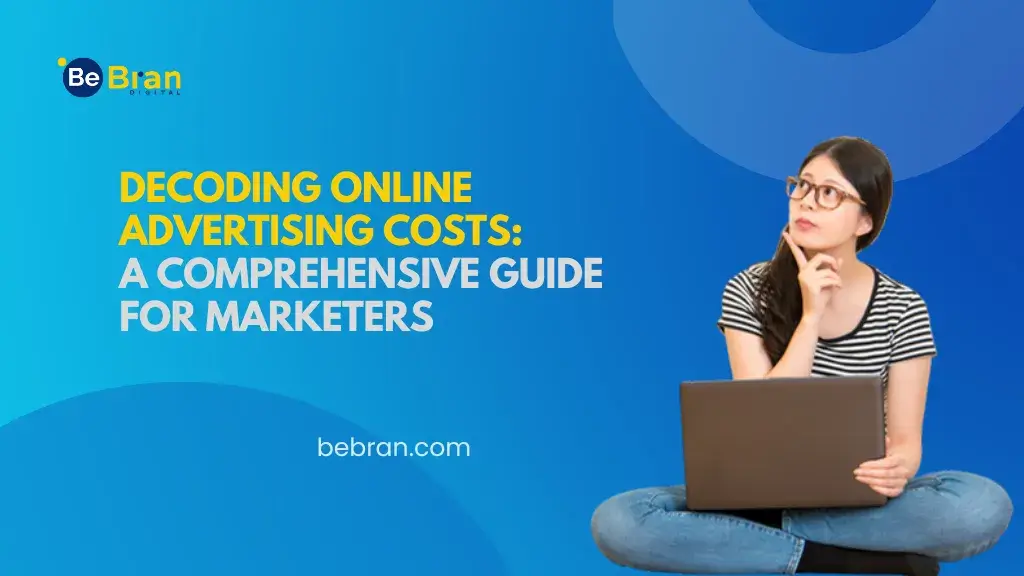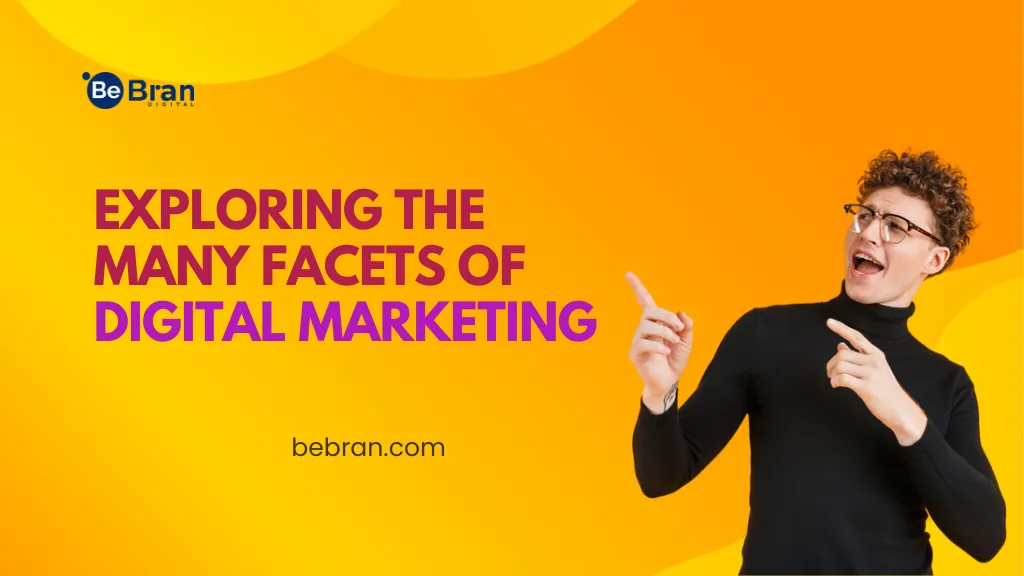
In the vast realm of marketing, the digital frontier stands out as the most dynamic and transformative. Exploring the Many Facets of Digital Marketing means delving deep into an ever-evolving world where technology meets creativity. It's not just about promoting a brand online; it's about crafting stories, building relationships, and navigating through the myriad channels of the internet to reach the right audience. As we embark on this exploration, we'll uncover the power and potential of each facet, shedding light on why, in today's digital age, mastering this realm is not just an option—it's a necessity. Let's dive in!
Digital marketing is like the bustling heartbeat of the online world. At its core, it's all about connecting brands and businesses with their target audience in the vast digital realm. Unlike traditional marketing—which uses mediums like print, TV, and radio—digital marketing leverages platforms such as websites, social media, email, mobile apps, and search engines. It's a blend of strategy and creativity, where marketers utilize data to tailor campaigns that resonate with potential customers. Whether it's a captivating Instagram ad, an engaging blog post, or a targeted email campaign, each effort is geared towards driving a specific action, be it brand awareness, a sale, or customer loyalty.
We're living in a digital age—a time when our phones are often the first thing we check in the morning and the last at night. The digital landscape is where conversations happen, opinions are formed, and decisions are made. Businesses, big or small, can't afford to miss out on this. Digital marketing offers unparalleled advantages. It's cost-effective, allowing brands to reach specific audiences with precision. It's adaptable, with real-time data providing insights to tweak campaigns for better results. Moreover, with the majority of consumers researching products online before purchasing, a strong digital presence isn't just beneficial—it's essential. In this era, digital marketing is the bridge connecting businesses to their customers, making its role more crucial than ever.
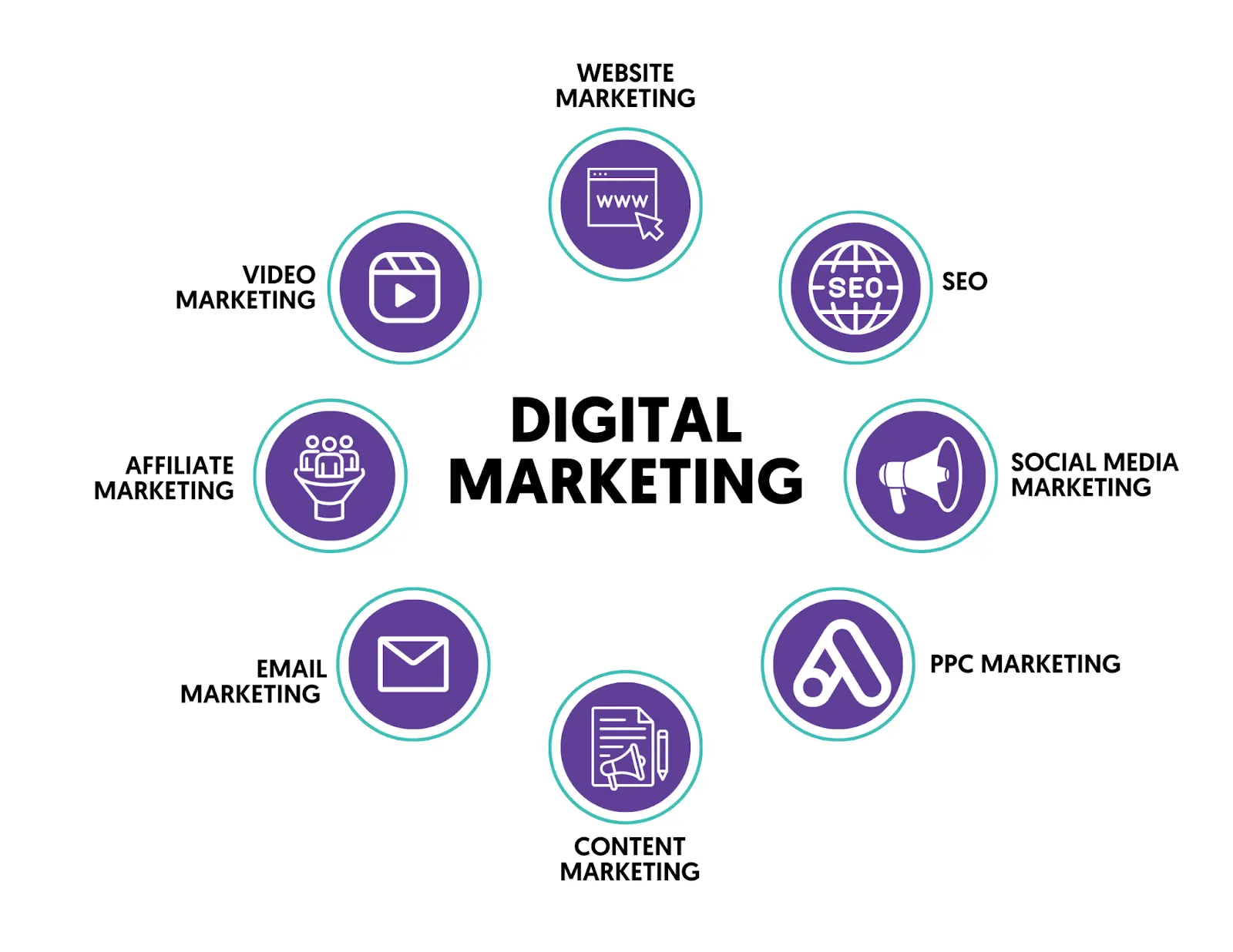
Digital marketing has evolved from a novel trend to an integral part of business strategy in just a few decades. With the rise of smartphones, social media platforms, and data-driven decisions, the marketing landscape has been transformed. Gone are the days of solely relying on billboards and TV commercials. Now, businesses connect with consumers directly in their digital spaces, from the palm of their hands to their desktop screens. The immense growth of digital marketing isn’t just a testament to technological advancements, but also to the shifting behaviors and preferences of consumers in the 21st century. Today, it stands as a dynamic, ever-evolving realm, leading the charge in the world of marketing.
Digital marketing has witnessed a dramatic shift over the past couple of decades. Initially, it was all about having an online presence with a basic website. Then came the surge of search engines, reshaping the landscape with Search Engine Optimization becoming the buzzword. Soon after, social media platforms like Facebook and Twitter burst onto the scene, offering new avenues for engagement. The rise of smartphones further fueled the fire, bringing about mobile marketing and app-centric strategies. Over time, technologies like AI, chatbots, and augmented reality have added new dimensions, making digital marketing richer and more interactive. The journey from mere web banners to sophisticated targeted campaigns exemplifies the magnificent evolution of digital marketing.
In today's digital age, moving online is no longer a choice but a necessity for businesses. Firstly, the internet offers a vast audience reach, breaking geographical boundaries. Consumers today prefer online shopping for its convenience, variety, and ease. Physical stores have limitations in terms of operational hours, whereas online businesses can operate 24/7. Furthermore, online platforms provide invaluable data analytics, helping businesses understand their consumers better and tailor their strategies accordingly. Not to mention, digital marketing can be more cost-effective than traditional methods, offering a higher ROI. The flexibility, reach, and adaptability of online platforms make them irresistible for modern businesses aiming for growth and sustainability.
Digital marketing, in its essence, is the art of promoting products, services, and brands using online platforms. But it's not a one-size-fits-all approach. Instead, it branches out into various types, each with its unique strategies and advantages. From the visually appealing world of social media marketing to the keyword-rich realm of search engine optimization, each type serves a distinct purpose. Then there's email marketing, a classic yet powerful tool, and newer entrants like influencer marketing that harness the power of online personalities. As we delve deeper, you'll discover the multifaceted world of digital marketing, helping you understand which types best suit your business needs.

In the vast world of digital marketing, Search Engine Optimization (SEO) stands out as a cornerstone. But what is it exactly? Search Engine Optimization is the art and science of tweaking your website so it ranks higher on search engines like Google, Bing, and Yahoo. Imagine you own a bakery. Without Search Engine Optimization, your bakery is like a hidden gem in a crowded alley. But with effective Search Engine Optimization, it's like having the prime corner spot on the main street!
The magic of Search Engine Optimization isn't just about sprinkling keywords throughout your content. It delves deep into creating high-quality content, optimizing website speed, ensuring mobile-friendliness, and building reliable backlinks. It's about understanding what your audience is searching for and delivering it in a neatly wrapped, easily accessible digital package.
Why bother? Well, statistics show that a significant chunk of people don't venture past the first page of search results. If you're not on that page, you're missing out on potential clients, readers, or customers. In short, mastering Search Engine Optimization can be the difference between online obscurity and digital dominance. It's the silent, relentless worker behind the scenes, driving organic traffic and making your online presence felt.
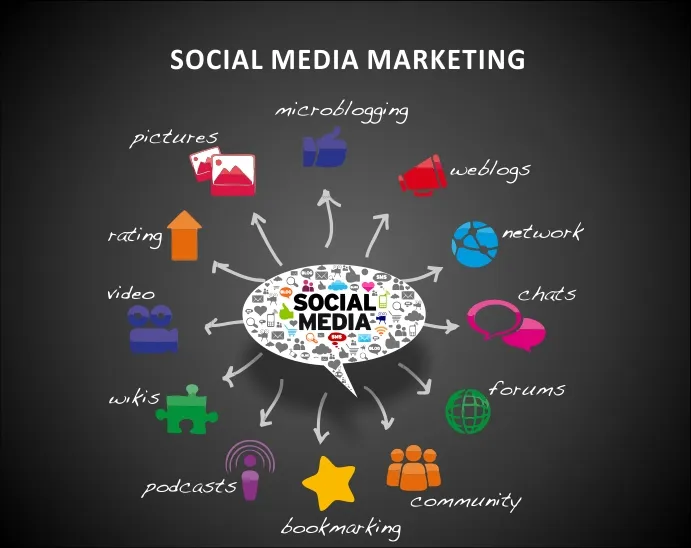
Ever scrolled through your social media feed and stumbled upon a captivating ad or post from a brand? That's Social Media Marketing (SMM) in action. SMM harnesses the power of platforms like Facebook, Instagram, Twitter, and LinkedIn to promote products, services, or even an idea. It's like a buzzing marketplace, where conversations happen, brands shine, and customers engage.
Unlike traditional marketing, SMM thrives on interaction. It's not just about broadcasting a message; it's about sparking a conversation. Whether it's through a meme, a heartfelt story, or an interactive poll, the goal is to engage and resonate with the audience. Think of it as a two-way street, where businesses not only talk but also listen.
And the benefits? They're plenty! For starters, SMM offers precise targeting. Want to reach 30-year-old yoga enthusiasts in Miami? You can. Moreover, it's cost-effective, allowing businesses, especially startups, to get more bang for their buck. But perhaps its most potent feature is its ability to humanize a brand. Through stories, live sessions, and direct interactions, brands can forge genuine connections, turning casual followers into loyal ambassadors. In the ever-evolving digital age, SMM is not just a strategy; it's a necessity.
Imagine walking into a library, but instead of books, there's valuable information tailored just for you. Welcome to the realm of Content Marketing! It's the art and science of crafting relevant, valuable content to attract, inform, and engage an audience, all while promoting a brand finely.
Now, you might wonder, "Why content?" Here's the thing: Today's consumers are savvy. They don't just want to be sold to; they want to be educated, entertained, and connected with. That's where content marketing shines. From insightful blog posts and captivating videos to informative infographics and engaging podcasts, content marketing offers a buffet of options to resonate with the audience.
The beauty of content marketing lies in its versatility. A skincare brand can share beauty tips, a travel agency can post breathtaking images of exotic locations, and a tech startup can provide how-to guides. By offering valuable content, brands position themselves as thought leaders in their industry.
But there's more! Besides building trust and enhancing brand reputation, content marketing aids in Search Engine Optimization and drives organic traffic. In a digital age where information is power, content marketing isn't just a tool; it's a bridge connecting brands with consumers, fostering lasting relationships.
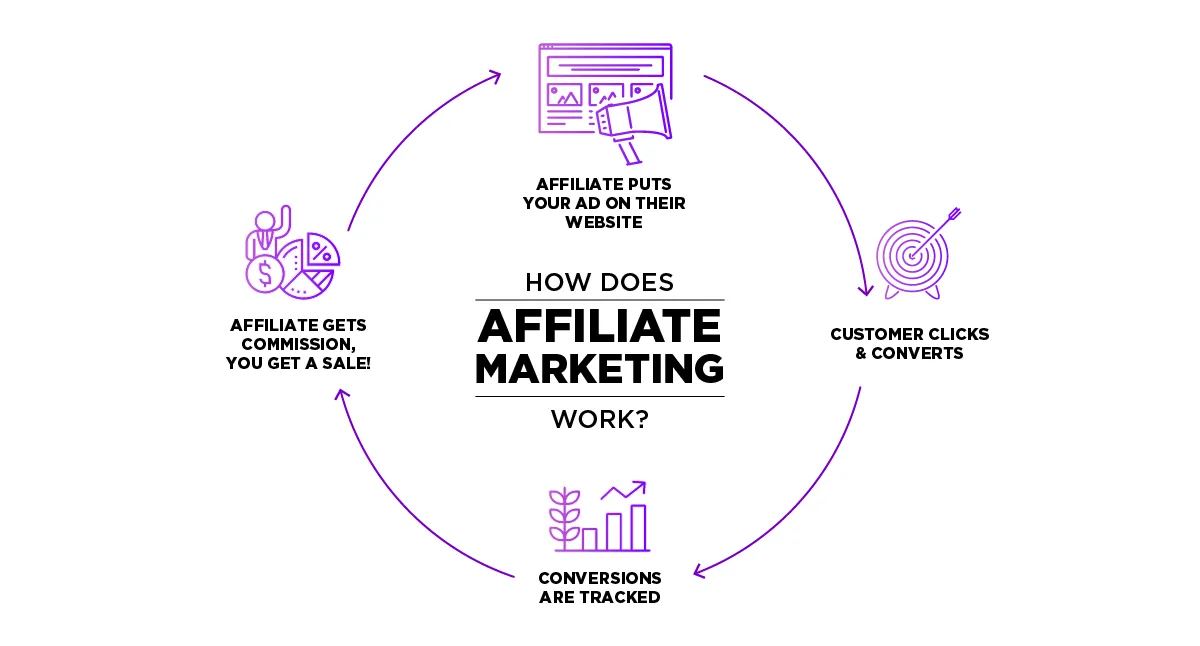
Have you ever recommended your favorite book to a friend and thought, "I wish I got a commission for this?" Well, in the digital world, there's a way – and it's called Affiliate Marketing!
Picture this: You have a website or a blog where you share content about various products or services. Now, what if you could earn a commission every time someone buys a product through a link you provided? That's the essence of affiliate marketing. It's a win-win-win scenario. The seller gets more sales, the buyer discovers a great product, and you earn a commission.
For businesses, affiliate marketing is like having an army of salespeople promoting their products without the overhead costs. They only pay when a sale is made, making it a cost-effective method of marketing.
For content creators, bloggers, or even everyday enthusiasts, it’s an opportunity to monetize their platform or passion. By promoting products they genuinely believe in, they can provide value to their audience while also earning a passive income.
In a nutshell, affiliate marketing is the sweet spot where commerce meets trust. By leveraging genuine recommendations and building on the foundation of credibility, both brands and individuals can benefit. It's commerce, simplified and optimized!
Ever wondered how those ads at the top of your search results magically seem to know what you've been looking for? Welcome to the world of Pay-per-click (PPC) advertising, where relevance meets immediacy!
In the simplest terms, PPC is a digital advertising model where advertisers pay a fee each time their ad is clicked. Rather than earning those visits organically, you buy them. It's like saying, "I'll pay for a spot in the limelight rather than waiting to be discovered."
One of the most popular forms of PPC is search engine advertising. For instance, when you search for something on Google, the top and bottom results are often ads. Advertisers bid for these spots, hoping that a click will lead to a sale or conversion.
But why do businesses love PPC? Speed and precision! Instead of waiting for organic traffic to grow over months, PPC provides instant visibility. Plus, with robust targeting options, ads reach the right people at the right time, making every penny count.
For users, it means relevant ads that answer their queries. For businesses, it's a direct route to potential customers. So, the next time you see an ad that's spot-on, remember there's a whole world of strategy behind that click!
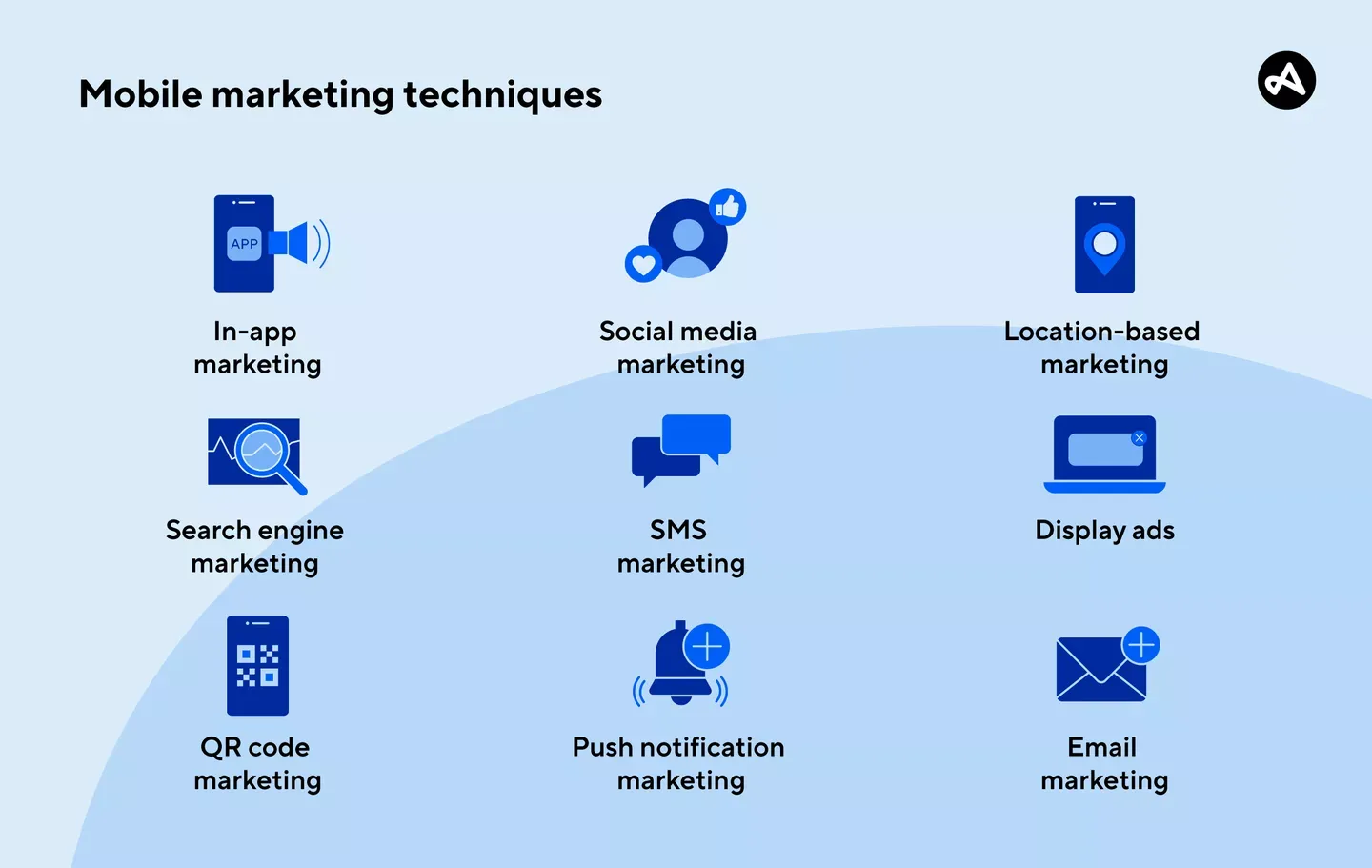
Raise your hand if your smartphone is within arm's reach right now! In today's digitally-driven world, most of us are guilty of being glued to our mobile devices. Businesses have recognized this shift, leading to the rise of mobile marketing.
Mobile marketing is the art of reaching your target audience directly through their smartphones, tablets, and other mobile devices, often via apps, email, SMS, social media, and websites. It's all about ensuring that promotional activities are designed specifically for the unique user experience these devices offer.
One of the standout features of mobile marketing is its immediacy. Push notifications can alert users about sales or promotions instantly. Specialized apps can offer personalized shopping experiences based on a user's preferences or past behavior.
Then there's location-based marketing. Ever received a discount notification when you're near a coffee shop? That's mobile marketing in action!
The benefits? For starters, mobile marketing offers a personalized user experience. It's also immediate and accessible, considering most people have their phones on them 24/7.
In essence, mobile marketing taps into the modern-day consumer's primary mode of communication and browsing. It's not just about being where the users are; it's about enhancing their digital experience, one notification at a time. So, the next time your phone pings with an offer, know that mobile marketing is hard at work!
The dynamic realm of digital marketing never stops evolving. Although Content Marketing, Email Marketing, PPC, and Affiliate Marketing are the most important techniques now, there are many more. With each passing year, new technologies and user behavior trends push the boundaries, compelling marketers to adapt and innovate. So, what does the future hold?
Voice Search: "Hey, Google! Find the best Italian restaurant near me." As smart speakers and voice assistants become commonplace, optimizing for voice search will be crucial. It's predicted that soon, nearly half of all searches will be voice-activated.
In essence, the future of digital marketing lies in creating genuine, tech-driven, and interactive experiences. As technology grows smarter, so must our strategies to engage, impress, and retain digital-age consumers. Stay tuned!
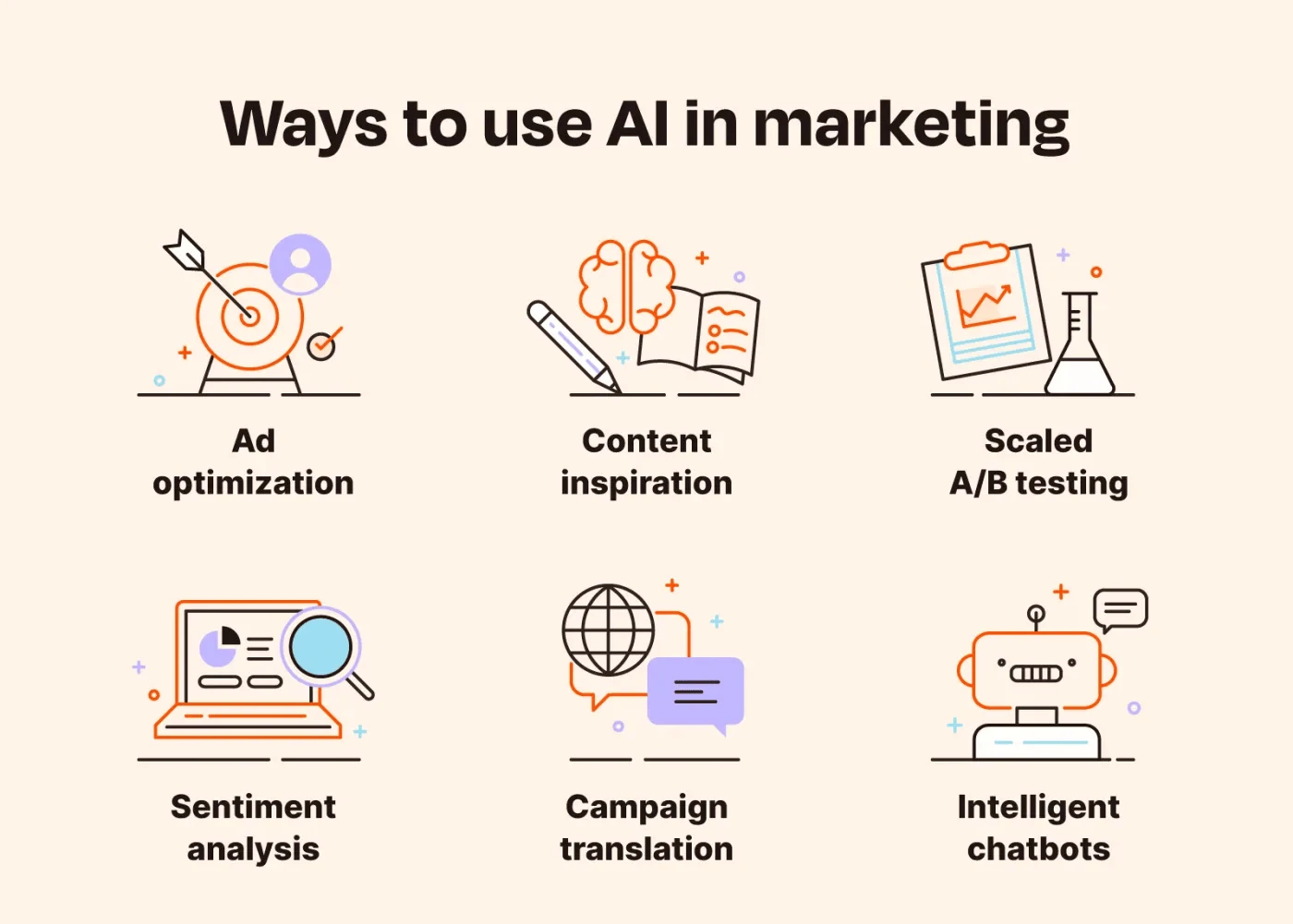
Digital marketing isn't just a buzzword—it's a dynamic blend of strategies tailored to reach audiences in the online world. From the organic allure of Search Engine Optimization to the real-time engagement of social media, each facet serves a unique purpose in the vast digital landscape. As technology advances, new trends like AI-driven automation and hyper-personalization will further reshape this domain.
For businesses, understanding and navigating these myriad facets is no longer optional but essential. Embracing digital marketing means keeping pace with change, anticipating future shifts, and most importantly, connecting more profoundly with the ever-evolving digital consumer. Learning Content Marketing, Email Marketing, PPC, and Affiliate Marketing are very important to get going with your journey.
1. What is the difference between digital marketing and traditional marketing?
While both aim to connect with and influence potential customers, digital marketing does so via online channels. Ways like Content Marketing, Email Marketing, PPC, and Affiliate Marketing help digital marketing. Whereas traditional marketing uses offline methods like print ads and TV commercials.
2. Why is data so important in digital marketing?
Data provides insights into consumer behavior, helping marketers tailor their strategies for better effectiveness.
3. Is Search Engine Optimization really that important?
Absolutely! Search Engine Optimization helps improve your site's visibility on search engines, which can significantly increase organic traffic.
4. How does affiliate marketing work?
It involves partnering with individuals or other businesses to promote your product/service. In return, they receive a commission for each sale made through their referral.
5. Can I do digital marketing for my small business?
Of course! Digital marketing offers tools and strategies for businesses of all sizes like email marketing and content marketing.

